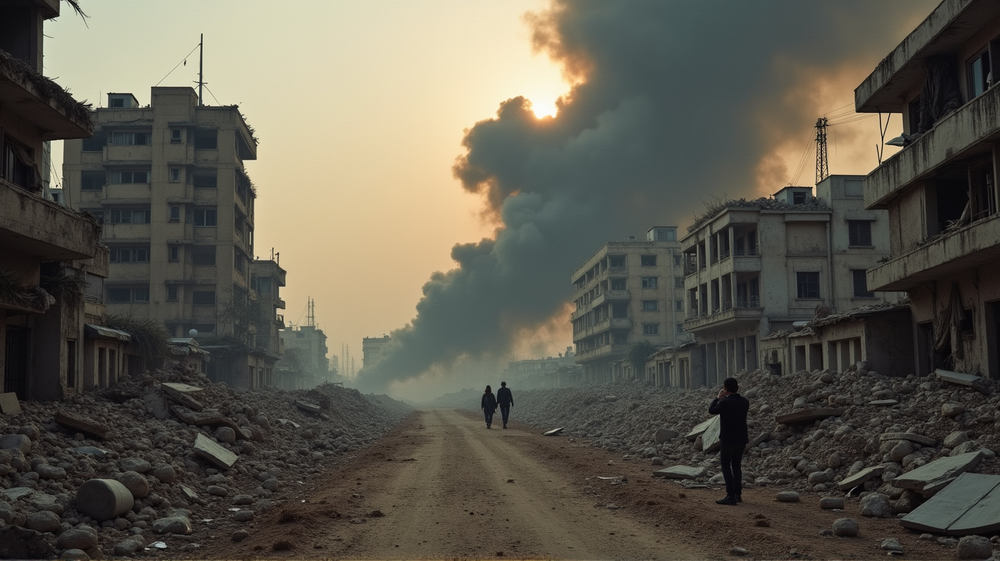The uncertain lull in violence between Israel and Hamas saw yet another challenge on Saturday, as airstrikes by Israeli forces rattled the fragile ceasefire agreement. According to health officials, at least 24 Palestinians have been reported dead, with scores more suffering injuries. The strikes, initiated in response to alleged gunfire against Israeli troops, signaled the persistent volatility of the region.
A Fragile Tranquility Shattered
“Suddenly, I heard a powerful explosion,” shared Khalil Abu Hatab, a resident who witnessed the destruction in Deir al-Balah. His words echo the collective fear and anxiety amongst Gaza’s residents, reminding us of the ceasefire’s fragility. The strikes primarily targeted militant infrastructures, but civilians bore the brunt, with many dead or wounded in their wake.
International Concerns and Criticisms
The recent flares of combat have attracted considerable attention from the international community. A new U.S.-backed resolution, aiming to stabilize and govern Gaza, remains in critical jeopardy due to these developments. According to AP News, the efficacy of this peace blueprint — underscoring paths to Palestinian statehood — is now questioned.
From Tension to Turmoil
The resumed hostilities demonstrate the ever-present tension underlying apparent peace. Israeli forces cited severe ceasefire breaches as justifications for the airstrikes, claiming that armed incursions threatened their troops. Yet, the humanitarian cost, with narratives like Khalil’s, illustrates the grim reality for Gaza’s populace.
A Ceaseless Cycle of Conflict
The weight of this enduring conflict on Gaza is immense, with nearly 70,000 Palestinians killed since the hostilities erupted. Israel’s military actions, intended to counter Hamas militancy, have inflicted profound humanitarian repercussions. The dispute relentlessly underscores the region’s need for sustained peacemaking efforts.
Rallying for Accountability
In Tel Aviv, Israeli citizens rally with demands for thorough investigations into past attacks, underscoring a national demand for accountability and improved security measures. As stories like Rafi Ben Shitrit’s resonate, the call for a refined approach to national defense becomes increasingly urgent.
The hope for peace persists despite setbacks, but every violent flare-up is a stark reminder of the delicate and destructive nature inherent in this protracted conflict. As international councils look on and local voices rise, the quest for a lasting resolution feels both vital and elusive.












